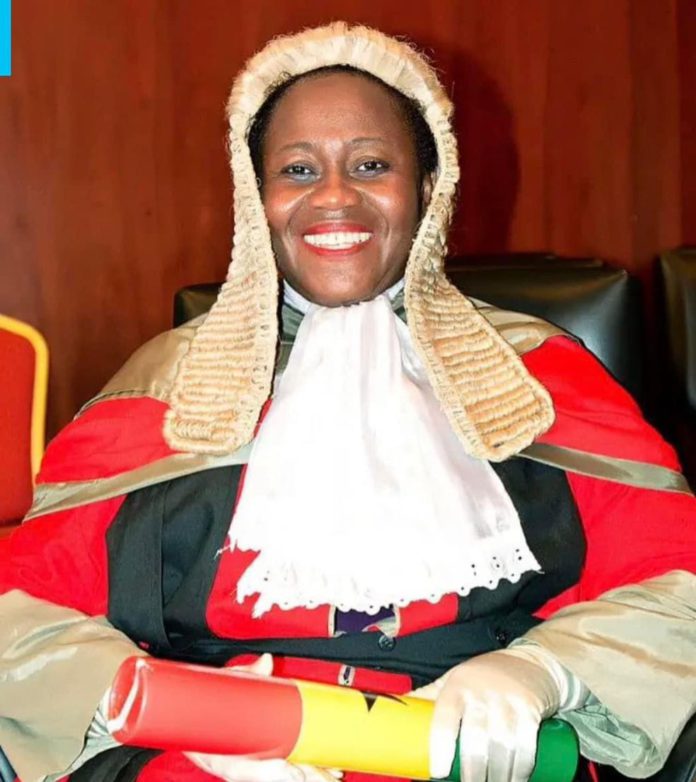Chief Justice Gertrude Esaaba Torkornoo has cautioned that a nation that overlooks the enforcement of its laws and does not ensure that justice is served to its people faces obstruction with its development.
She said in the absence of justice, peace which she says is a prerequisite for development, is critically impaired.
The Chief Justice, who was speaking on Wednesday at the 2023 National Development Conference at Pentecost Convention Centre at Gomoa Fetteh in the Central Region on the theme: ‘Moral Vision and National Development‘, noted that the judiciary does not see morality as a personal preference of a person.
She asserted that the constitutional mandate given to the judiciary to discharge justice requires the maintenance and enforcement of the highest standards of ethical conduct and the upholding of the innate need of the human soul for justice in a nation.
She reiterated that justice is an essential condition for peace and stability and the quality of life in every nation, explaining that upholding the laws and investing in the building of justice delivery in a nation brings prosperity to its citizens.
Chief Justice Torkornoo noted that “There cannot be no prosperity without peace and there cannot be peace unless people are assured that their rights will be upheld and they will not be robbed of their entitlement.”

According to her, members of the judiciary have chosen to defend the morality of a person through the power given to them by the Constitution and other government institutions.
“Is morality subjective?… I do not think so, we in the judiciary do not think so. The humble view of the judiciary is that to the extent that the nation has chosen to order its affairs in accordance with the rule of law, we have chosen to defend our moral content and context from the basket of legality given to us in the constitution, from the statutes and enactment of Parliament, from the rules and regulations of government institutions and from customary law which is part of the common law of Ghana as provided for under Chapter Four of the 1992 Constitution.”
She therefore expressed hope that all issues will be examined on the foundation of law, equity and good conscience.
Justice Torkornoo added; “It is my conviction that in our kaleidoscope of ethnicity, our belief systems, our vocations and talents, the elements of the laws of Ghana, the rules of equity, and the innate ethical values that flow from good conscience, these can surely bind our hearts and minds together and assist us to arrive at a nationally accepted vision of morality.”
“Such a vision can then drive the mind with which we walk, talk and work together, thus aiding us to uphold rights, give entitlement and insist on obligations whether at home, workplaces or on the road,” she said.
The Chief Justice was optimistic that if the country abides by these rules, it “is the surest way to weave harmony and coherence into the diversity we have in our beautiful country.”
She noted that if the church agrees with the judiciary that the country needs the grace and blessing of God, then “as a nation, we must work towards giving justice to all manner of persons, rich or poor, young and old.”
ALSO READ:

